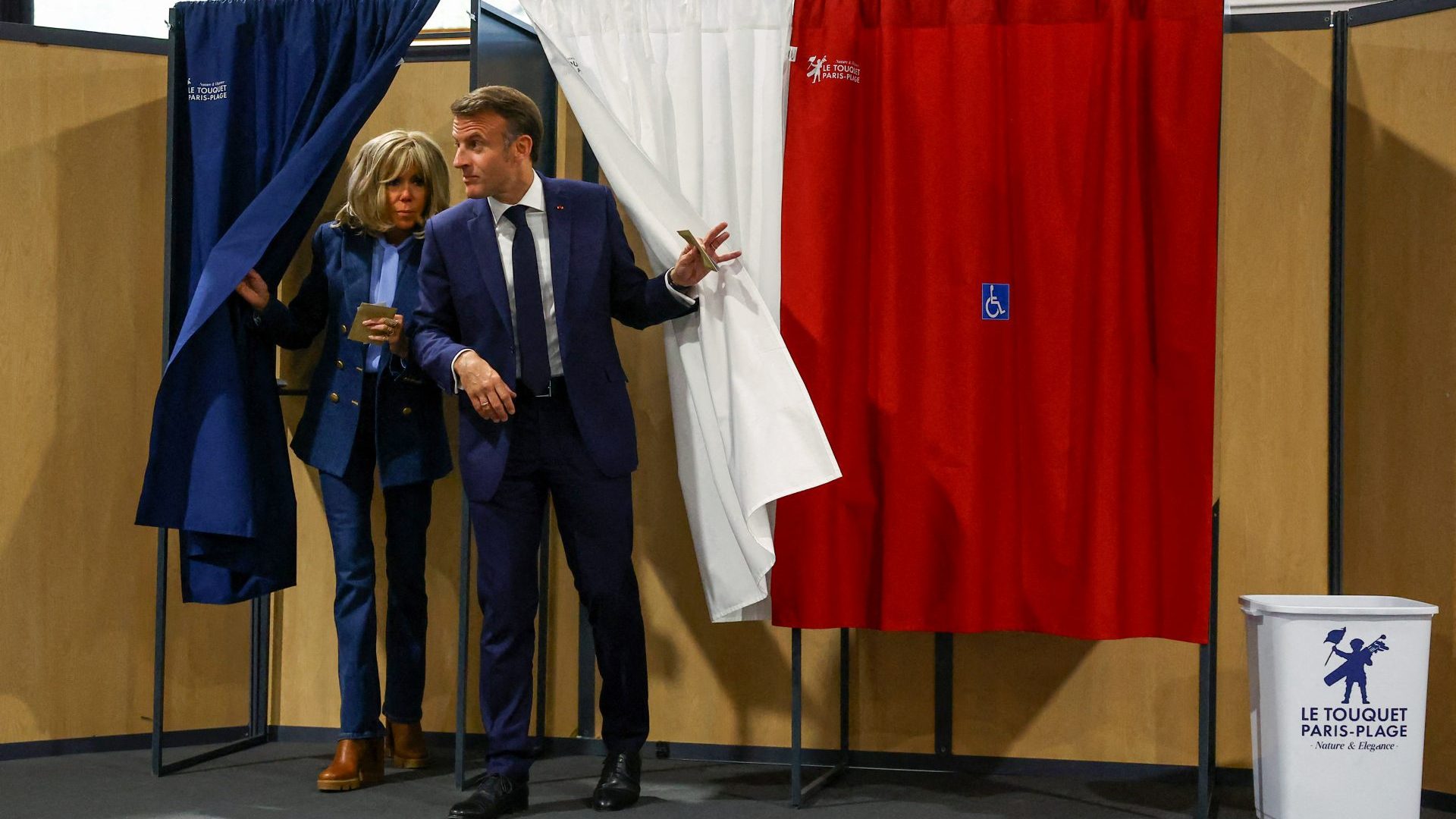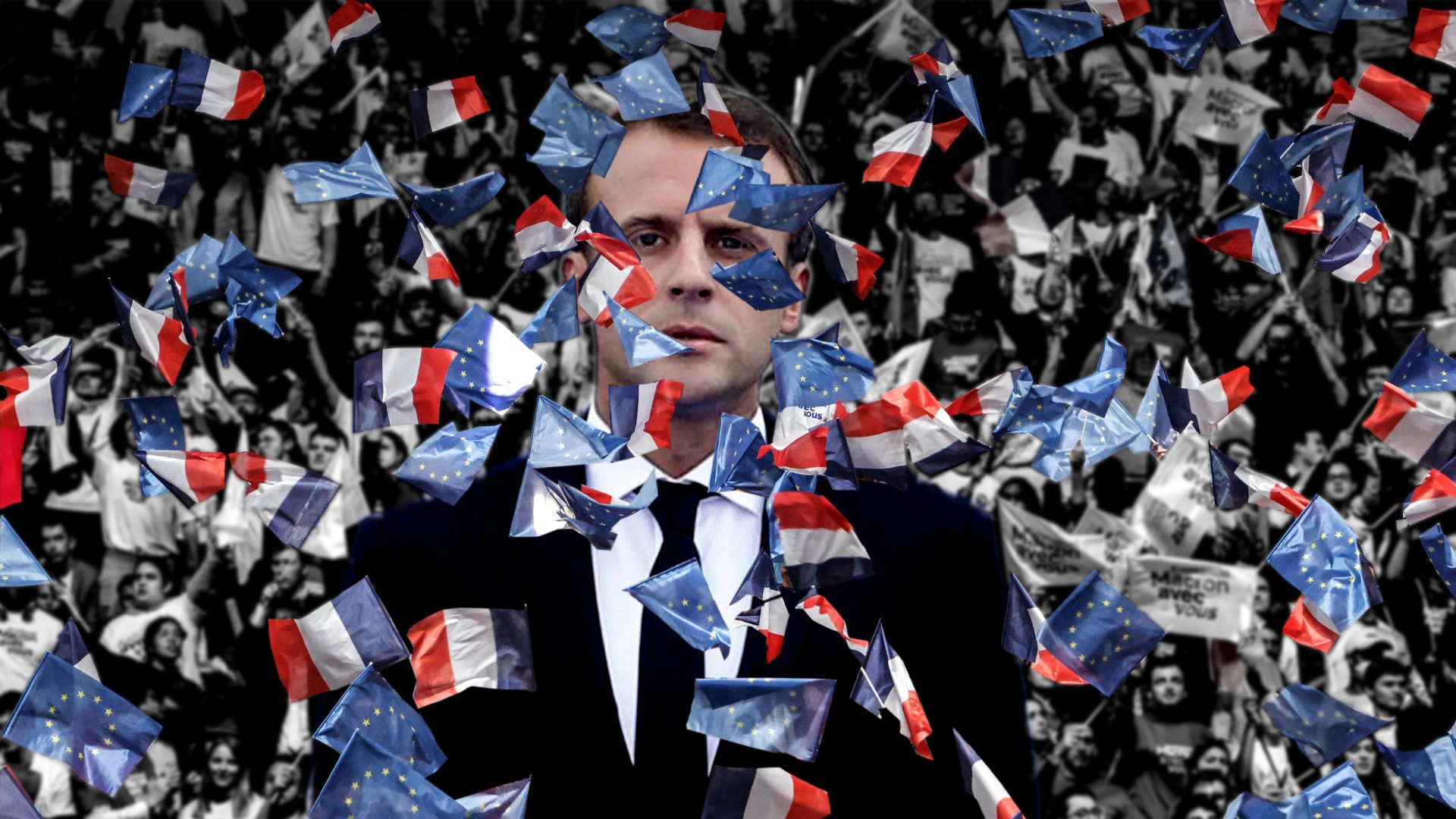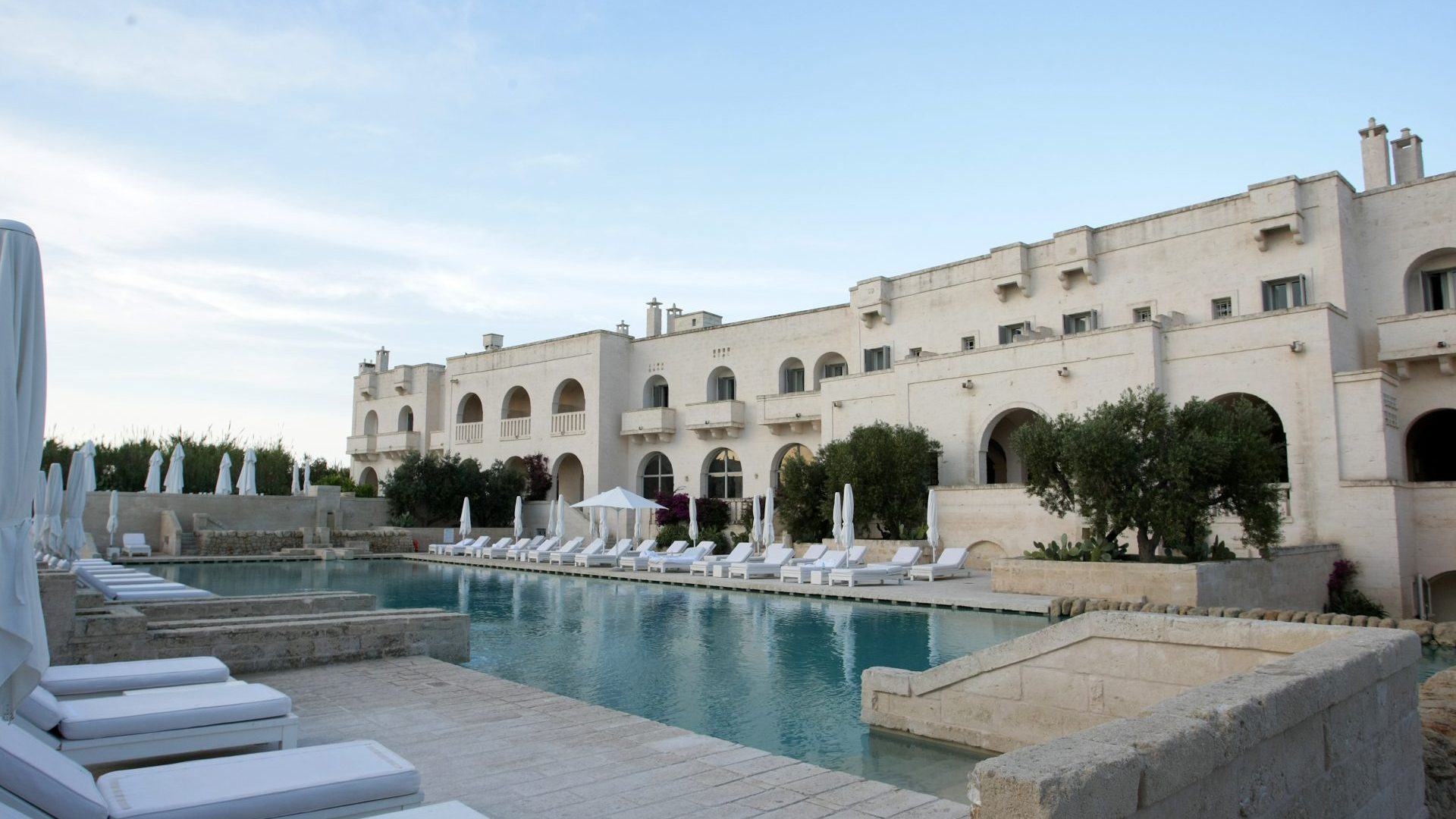“Macron is going to speak. The whole programme has been turned upside down I’m afraid. You’ll be speaking later than planned… more likely not at all.”
It was 8.30pm on Sunday June 9, when the person in charge of the European election coverage on France’s public broadcaster greeted me with these words at the bottom of the France Télévisions building, on the banks of the Seine.
Along with a few other journalists and political experts, I had been invited to comment on the results of the elections. We all found ourselves in a dressing room next to the studio, in front of a small television screen.
We had a vague feeling that the new European Parliament, marked by the rise of the populist nationalist right across Europe, would no longer be the issue of the evening. The event was no longer the results of the European elections, but the crushing victory of the Rassemblement National, the loss of the presidential majority and the conclusions that president Macron was going to draw from it.
We began to discuss Macron’s forthcoming speech. We could hardly believe the rumour that he was going to announce the dissolution of the National Assembly. He had repeatedly said during the campaign that he would not do so and he wasn’t obliged to.
“No, he’s not going to do it, it would be crazy and suicidal,” said one of us. “He’ll do it. It’s just like him to want to surprise people and take one last shot at poker,” said another.
“He’s so proud… he’s personally offended and he thinks he’s De Gaulle. He hopes to get away with making a big splash,” said a third. We all agreed on one thing: the monumental failure of Emmanuel Macron. It was a huge mess.
And then: “Hush, he’s talking!”
The president looked so old on the TV screen. The amazing 2017 victory of an unexpected candidate without a party and apparently above the party system seems decades away now.
Then the shock of his announcement. We were stunned. There was a silence, followed by a few comments, ranging from “He’s completely crazy!’ to “What else could he do?” and “It’s democratic and courageous, it doesn’t lack panache”.
Politicians began to file down the corridor and into the studio. We, the potential commentators on the European elections, had nothing left to do but head outside to look for a taxi.
Macron said it himself in his speech after the announcement of the disastrous European parliamentary results: “I can’t pretend nothing’s happened.” He was preparing for it.
For several months, eight people, including two ministers and three advisers, had been working at the Élysée Palace, in the greatest secrecy, on a scenario that included the dissolution of the National Assembly.
In a sense, dissolution is eminently democratic. The president is criticised for not listening to the people? Well, he now listens to the people and is willing to take the consequences.
But at what cost? The operation is insanely risky. “Pyromaniac fireman”, “poker player”, “sorcerer’s apprentice” – those were a few of the expressions used in the media to describe the shock move. People close to him are calling him crazy, some of his supporters have cried. Distraught MPs and ministers are keeping quiet.
So what does Emmanuel Macron have in mind? How are we to interpret this seemingly desperate gesture as a last resort? There are three hypotheses:
Hypothesis 1: Macron believes that the European elections, usually an opportunity to let off steam and get carried away, will not be repeated at the national elections where people vote more cautiously. He wants to believe that the votes cast for the far right – the 31.6% for Jordan Bardella’s list, added to Marion Maréchal’s 5.47% – were a protest vote more than a vote of genuine support.
He wants to believe that the French will think better and that the half of all voters who did not turn out will be startled, and that their mobilisation will make the difference.
Assuming that hypothesis 1 succeeds and that the president avoids an absolute majority for the Rassemblement National, Parliament will remain ungovernable. Popular anger will remain intact, increasing the chances of a Le Pen victory in the 2027 presidential election.
Hypothesis 2: Macron wants to repeat the trick that worked in the 2017 and 2022 presidential elections: a Republican front against the far right.
Stéphane Séjourné, minister of foreign affairs but also leader of the Renaissance Party has announced: “We will not present a candidate against outgoing members of the Republican camp.”
Will the “reasonable” left wingers and right wingers withdraw their support for each other? Will the moderate right vote for a moderate left wing candidate – and vice versa? It’s doubtful.
And why should other parties bail out Macron? He has suffered a historic defeat, it was he who wanted to set up the duel between himself and the Rassemblement National, and now he’s asking us to come to his rescue?
Hypothesis 2 presents the social democratic left with a dilemma. By coming third in the European elections with 13.8%, Raphaël Glucksmann succeeded in strengthening this so-called “reasonable” left (Socialist Party), to the detriment of the radical left (France insoumise, 9.9%). He put an end to the Nupes, the hard-left grouping headed by Jean-Luc Mélenchon.
The dissolution sought by Emmanuel Macron risks putting the Nupes back in the saddle and shattering the beginning of the rebirth of a reasonable and credible left.
Hypothesis 3: Macron thinks Le Pen will win a landslide victory. He has already planned to appoint Jordan Bardella as prime minister (or someone else nominated by the party).
He figures that their incompetence will be so obvious that they will exhaust themselves in power and arrive in a weak position for the 2027 presidential election. He has said privately what he thinks of Bardella and Le Pen: “They’re rubbish”. The only problem is that they win.
Hypothesis 3 is also high-risk. Prime minister Gabriel Attal took the “They’re rubbish” attitude during his debate with Bardella at the end of May.
Rationally speaking, Attal crushed Bardella by demonstrating the futility and contradictions of his proposals. But politically, Attal lost. Bardella gained points in the polls.
We have entered the age of populism and words and reason no longer matter.
What winning scenario can Emmanuel Macron hope for? In the history of dissolutions, De Gaulle succeeded in 1969, but French boomers remember well Jacques Chirac’s failed dissolution of 1997. The president had followed the advice of Dominique de Villepin, then secretary general of the Élysée Palace. From then on, Bernadette Chirac, who hated Villepin, addressed him witheringly as “Monsieur le stratège”.
No Villepin this time. The strategist this time is Emmanuel Macron, and him alone.
He’s certainly not alone in the face of the nationalist-populist phenomenon. But he carries the phrase uttered on the evening of his election in 2017, after his victory over Marine Le Pen, like a heavy burden.
In that moment, he promised France that he would “do everything” in his five-year term to ensure there would be “no more reason to vote for the extremes”.
The fact that he has paved the way for the far right – that is Emmanuel Macron’s major defeat. If he loses out in the aftermath of the dissolution, it will overshadow everything else.
“Macron will end up like Napoleon III after Sedan,” the essayist Alain Minc told me, even though he was one of Macron’s mentors and advisors. He was referring to the last French emperor, who disappeared from politics in disgrace after France’s defeat by Prussia at Sedan in 1870.
Emmanuel Macron was at an impasse anyway. With no majority in the Assembly since 2022, his political position was disintegrating. He risked a motion of censure in the autumn at the time of the vote on the budget. Perhaps that made dissolution seem the more attractive option.
Couldn’t he have done less? Couldn’t he have reformed the voting system in the National Assembly from majority to proportional representation, for example? Perhaps he could have waited for a less explosive European and international context.
The two rounds of parliamentary elections will be held on June 30 and July 7. The president has declared that he will be personally involved in the election campaign.
Three weeks for a poker game, with a busy international agenda, including the G7 in Italy and the peace conference in Switzerland.
It would be amusing if the stakes weren’t French democracy, France’s credibility in the European Union and support for Ukraine, all of this set against the backdrop of looming American elections.
“Not only is Macron bigheaded, but he’s playing Russian roulette with our country,” was how the far-left MP François Ruffin summed it up.
July won’t be a dull month. On July 26, just after the elections, the Olympic Games will be inaugurated in Paris. Will prime minister Jordan Bardella welcome delegations from all over the world?
On July 18, in north London, the British prime minister, almost certainly Keir Starmer, will welcome the newly burdened French president to Blenheim Palace, for a meeting of the European Political Community.
What will Macron say to Starmer? The British prime minister will be beginning his great attempt to reverse the poisonous effects of right wing populism and all its consequences. It is not certain that he will look to president Macron for advice on that task.
Marion Van Renterghem is a French journalist, and biographer of Angela Merkel.




